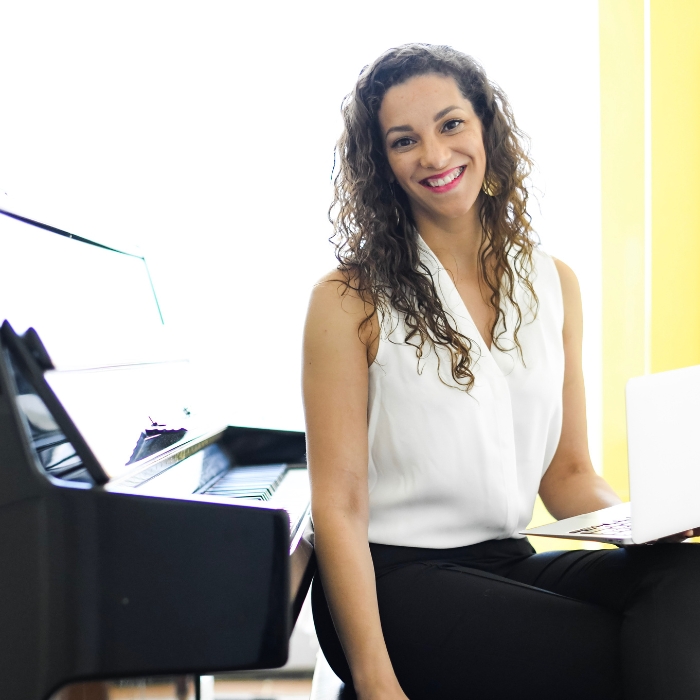From the expert: How to choose an instrument for your child
May 26, 2024
From 2024 resident scholar Rebecca Lane of Lane School of Music
Choosing an instrument for your child can be overwhelming. My daughter is still consistently inconsistent in that her favourite colour is purple one week and pink the next. How can she possibly choose which instrument to learn for the year, perhaps longer? How can I, as her parent, make that choice for her?
These are questions I often hear as the Director of The Lane School of Music. Take heart, fellow parents! There are some basic criteria that can help you determine which instrument is best for your child.
Here are three things to consider when diving into the world of music lessons:
1. Is there a close connection to a specific instrument in your family?
Do you have a piano collecting dust in the corner? Does Great Aunt Sue own a pretty decent cello? Did the older cousins start violin already, leaving in their wake a set of tiny violins?
By choosing an instrument for your child in which you already have a vested interest, you can deepen your relationship with your child. Plus, there is the added bonus of having a resident expert right in the home who can help with practising and motivating.
2. Does your child exhibit a strong preference for a certain instrument?
Sometimes kids just know that they like a certain instrument. They see someone play the violin at a party, and they are dying to try it, or you can't stop them from tinkering on the piano or singing silly jingles. It's important to follow their lead. If your child is asking to play a specific instrument, chances are good that it’s the right choice.
3. Does their natural ability lend itself to a specific instrument?
Your child was born with a natural ability to learn music. However, they also possess a set of natural attributes specific to them that may help them succeed in one instrument versus another, similar to how tall people have an innate advantage in basketball.
Height: Children who are tall or have large hands are well-suited for instruments like the cello or double bass. While it is certainly possible to play these instruments without long fingers, being physically tall is an advantage.
Personality: Does your child have a Type A personality, with a strong attention to detail? This might make the violin an excellent candidate for their first instrument. While these instruments can be difficult to learn in the beginning years, children who thrive off of instruction and structure are often thrilled with the level of detail associated with learning the violin.
Attention span: Is instant gratification important to your child? Piano lessons might just be the route for them. When a key is pressed on a piano, a beautiful note sounds. Of course, learning to move their fingers independently is not instant, but from the very first lesson, the sound coming from the piano will be beautiful.
When choosing an instrument for your child, sometimes it's best to just give a lesson a try. At The Lane School of Music, we even offer a trial lesson so that you can test out an instrument (and teacher!) even after you've worked through the above list (you can request a trial lesson here).
Parenting is hard enough. Don't sweat the small stuff! We’ll help you every step of the way.
***

Rebecca Lane is the owner and director of the Lane School of Music, a music school she founded from her home in 2010. Now with three physical locations in Toronto, online lessons and a multitude of instrument choices, The Lane School of Music serves over 700 students weekly. When she is not leading the music school or spending time with her husband and three children, Rebecca enjoys reading a good business book with a side of dark chocolate.
Stay connected with news and updates!
Join our mailing list to receive the latest news and updates from our team.
Don't worry, your information will not be shared.
We hate SPAM. We will never sell your information, for any reason.


